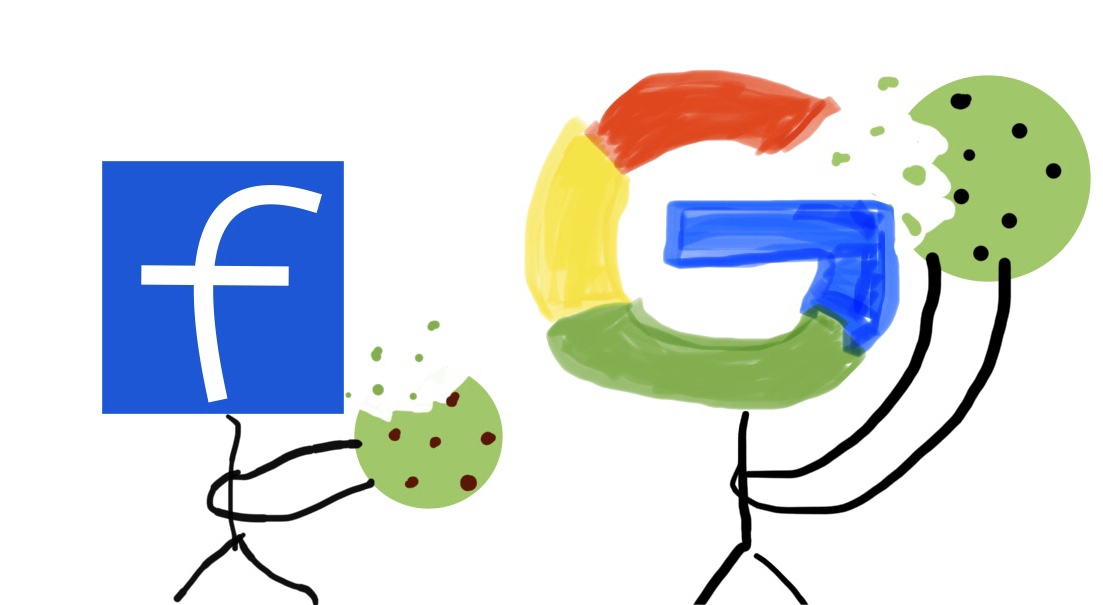Have you noticed, when you go to Amazon to buy, let’s say, a new shirt, and then an hour later you start seeing ads to buy a shirt of the same brand on every website you go to? Well, those are personalized ads. Those personalized ads are caused by cookies. Cookies are little bits of information that are sent from the website you are currently browsing and downloaded to your computer. This is very useful because your website can remember information if you accidentally reload or exit the page. For example, sometimes when you go to a website, you are already logged in. That is because of a cookie.
Even though cookies are convenient, they can also be used for bad things. Cookies are pretty secure. They can only be read by the website you visited and the cookies can’t track you if you go to another site. That is where the companies find a loophole. Companies find a way to place their cookies on other people’s websites, which allows the companies to track where the user is. For example, google’s ad system. A lot of ads you see on sites are run by Google. Since the ads are owned by Google, Google can make the ads targeted, even on other sites. Another example is Facebook’s “like” button. Whenever you see a “like” or “share” button for Facebook on another site, a part of Facebook is on that site, allowed it to track you on the said site. Such cookies that can be placed on different websites, are called third-party cookies.
There are other types of cookies too. An authentication cookie is one of the most common. As said before, they are so you don’t have to login again after logging in once. One particularly dangerous cookie is a supercookie. Supercookies have an origin of a domain name (such as .com or .org) instead of a specific web address (such as google.com or reddit.com). This is dangerous because the cookie can go on with the same domain, such as foo.com. The cookie can then affect requests made on that website. This is very dangerous because then the supercookie can be used to fake user information or a user login. Most web browsers block supercookies, but it is still good practice to be cautious visiting potentially malicious websites. The security of the cookies is dependent on the website you’re on and the web browser you’re using.
The way someone views cookies entirely depends on them. You might think they are very dangerous and completely disregards your privacy, or you just don’t really care because it is convenient. Either way, people should know what cookies do so they can form their own opinion on them.
About The Author:
William Zhao is in the 9th grade in the public school system in the United States of America. He is situated at the tech-filled San Francisco.
